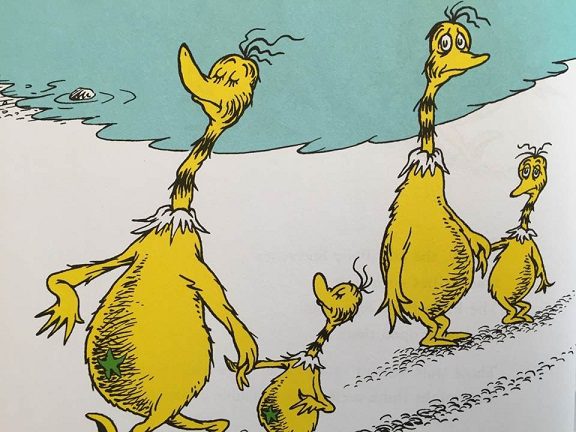Last week, a Christianity Today article reported that “Half of Americans Say Evangelicals are Discriminated Against.”
Sigh. I always appreciate being reminded that evangelical Christians believe that they are the most persecuted majority in history, constituted by people who can’t tell the difference between disagreement and discrimination. What evangelical Christians actually are is a prime example of how faith can turn into defensive tribalism.

This is something that one of my favorite Christian apologists, Marilynne Robinson, is acutely attuned to. The recently published Balm in Gilead is a collection of essays presented at a 2018 theology conference on Robinson’s work at Calvin College. Robinson’s own contribution to the colloquium, “The Protestant Conscience,” pulls no punches. Sounding at times like a prophet from the Jewish scriptures pointing an accusing finger, Robinson notes that
It is characteristic of Christians in many times and places to decide that the grace of God is very narrowly channeled—through their own beliefs and practices, usually. This can mean for them a qualitative difference between themselves and all those others outside the precinct of their sect or denomination or their alliances. It can mean that those others will be seen as a threat, simply because they exist.
Under such conditions, faith can quickly turn into defensiveness and fear:
It has been true of Christian churches again and again that their faith takes the form of a belief that they uniquely can claim to know the will of God and to afford the means of salvation. It is at this point that faith takes on the worst qualities of fear.
Last week was the final week of spring semester classes on my campus; I’ll particularly miss one of my classes that focused on the work of three important women: Simone Weil, Iris Murdoch, and–you guessed it–Marilynne Robinson. We ended the semester with Robinson’s essay “Awakening” from The Givenness of Things. In this essay, Robinson reflects on a contemporary phenomenon that runs rampant through our current public and political discourse—a professed “Christianity” that looks and sounds like anything but Christianity.
No doubt as a consequence of a recent vogue for feeling culturally embattled, the word “Christian” now is seen less as identifying an ethic, and more as identifying a demographic. On one hand I do not wish to overstate the degree to which these two uses of the word “Christian” are mutually exclusive, and on the other hand I think it would be a very difficult thing to overstate how deeply incompatible they can be.
For many people, in other words, “Christianity” has become a tribal label, a marker of “us” vs. “them,” the very sort of tribalism that currently infects and threatens to permanently damage our political and social structures. Robinson notes that when the hallmarks of being a Christian are reduced to “are you in or out?” very un-Christian consequences are inevitable.
The simple, central, urgent pressure to step over the line that separates the saved from the unsaved, and after this the right, even the obligation, to turn and judge that great sinful world the redeemed have left behind—this is what I see as the essential nature of the emerging Christianity. Those who have crossed this line can be outrageously forgiving of one another and themselves, and very cruel in their denunciations of anyone else.
How is it, I have been wondering for some time now, that professed Christians can support candidates and policies that are, by any stretch of the imagination, anything but embodiments of traditional Christian values? How is it, for instance, that evangelical leaders like Franklin Graham, Jr. and Jerry Falwell, Jr. are joined at the hip to Donald Trump apparently until death they do part?
If Marilynne Robinson is right, it is because contemporary Christianity often is not a way of life or a commitment to the principles of a historic and beautiful religion—it is rather a way to facilitate what are often the worst tendencies in human nature and behavior.
People of good faith get caught up in these things in all times and all places. In the excitement of the moment who really knows he or she might not also shout, “Give us Barabbas!”
All of this sounds rather harsh and judgmental—also not congruent with Christian values. So be it. I grow weary of hearing the name of my faith used in the service of un-Christian and inhumane policies and actions, in much the same way that sincere and serious Muslims must tire of hearing their ancient religion’s name used as a placeholder and justification for terrorism and murder. The truth of the matter is that Christianity as a lived faith runs contrary to much of our deepest, natural human wiring. The first will be last; to him who asks give; turn the other cheek; judge not. Tribal Christianity, on the other hand, appeals to the worst in our nature. As Robinson points out,
It is worse than ordinary tribalism because it assumes a more than virtuous us on one side, and on the other a them who are very doubtful indeed, who are, in fact, a threat to all we hold dear . . . If the claims to Christian identity we hear now are rooted in an instinctive tribalism, they are entirely inappropriate, certainly uninformed, because in its nature the religion they claim has no boundaries, no shibboleths, no genealogies or hereditary claimants.
As Robinson writes, fear and the desire for identity and a place to belong can cause people of good will and intentions to choose and accept things that are in truth the very opposite of what they claim to believe in, even with the real thing right in front of them. But fear need not rule the day.
We should take very seriously what the dreadful past can tell us about our blindnesses and predilections. The haunting fact is that we are morally free. If everyone around us is calling for Barabbas, it is only probable—but never necessary—that some of us join in.













